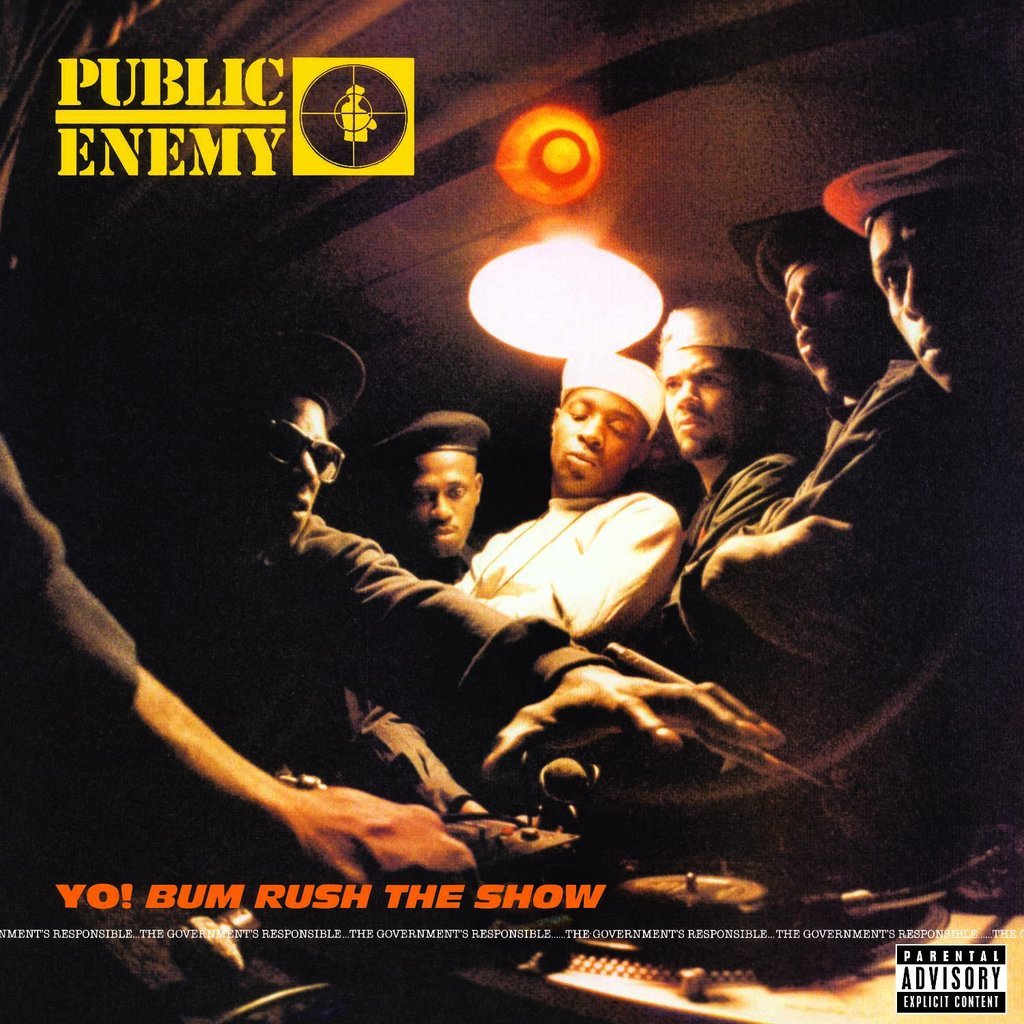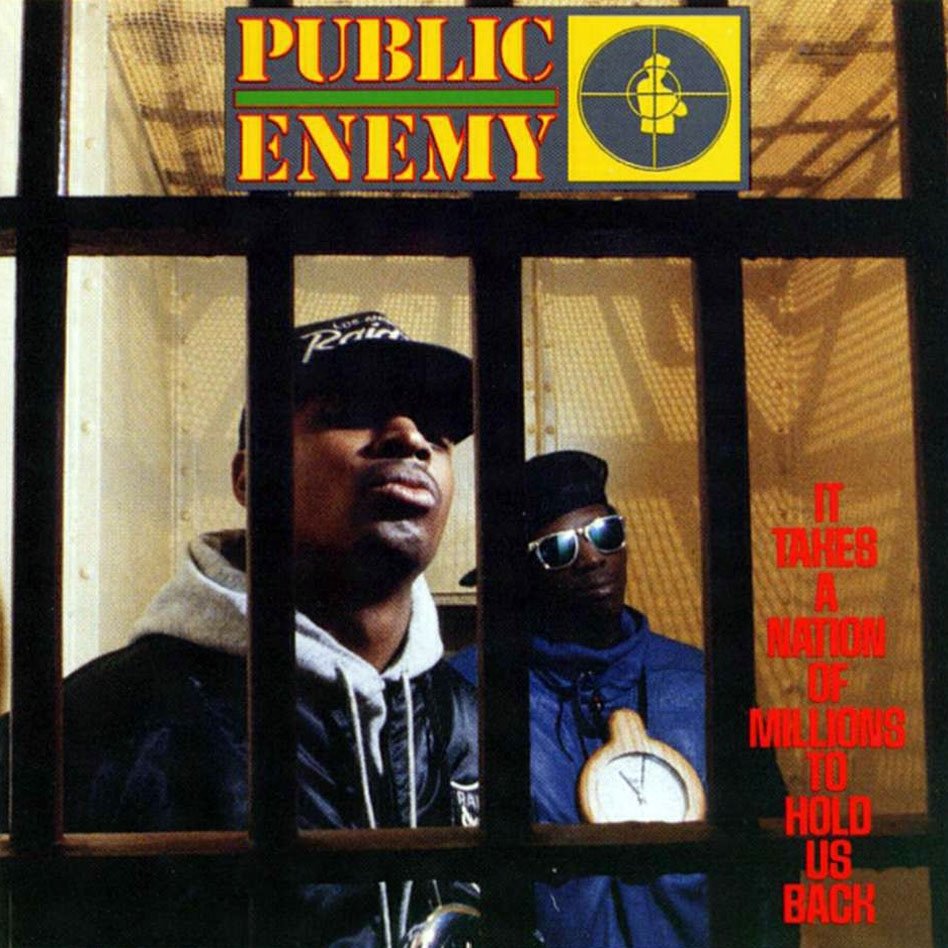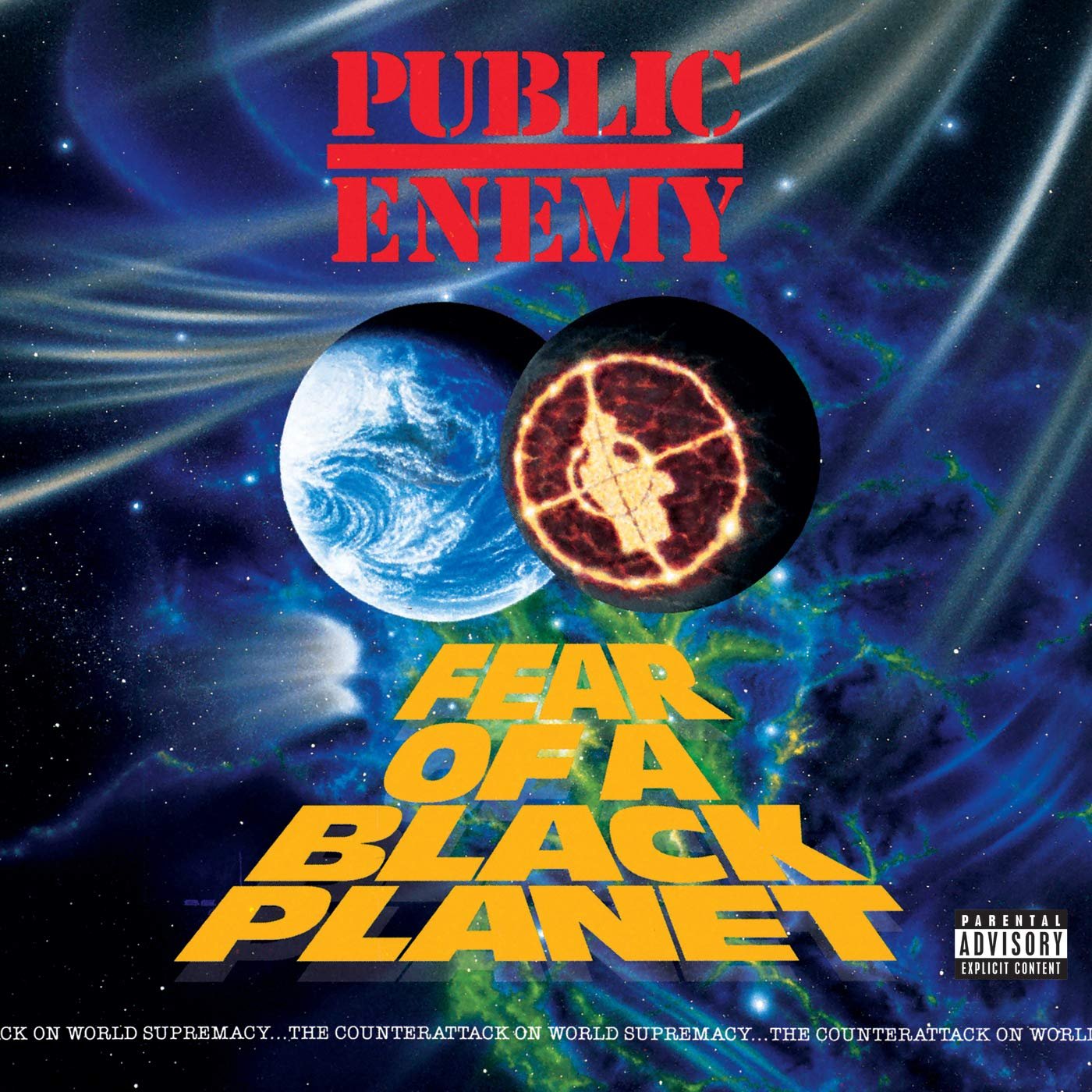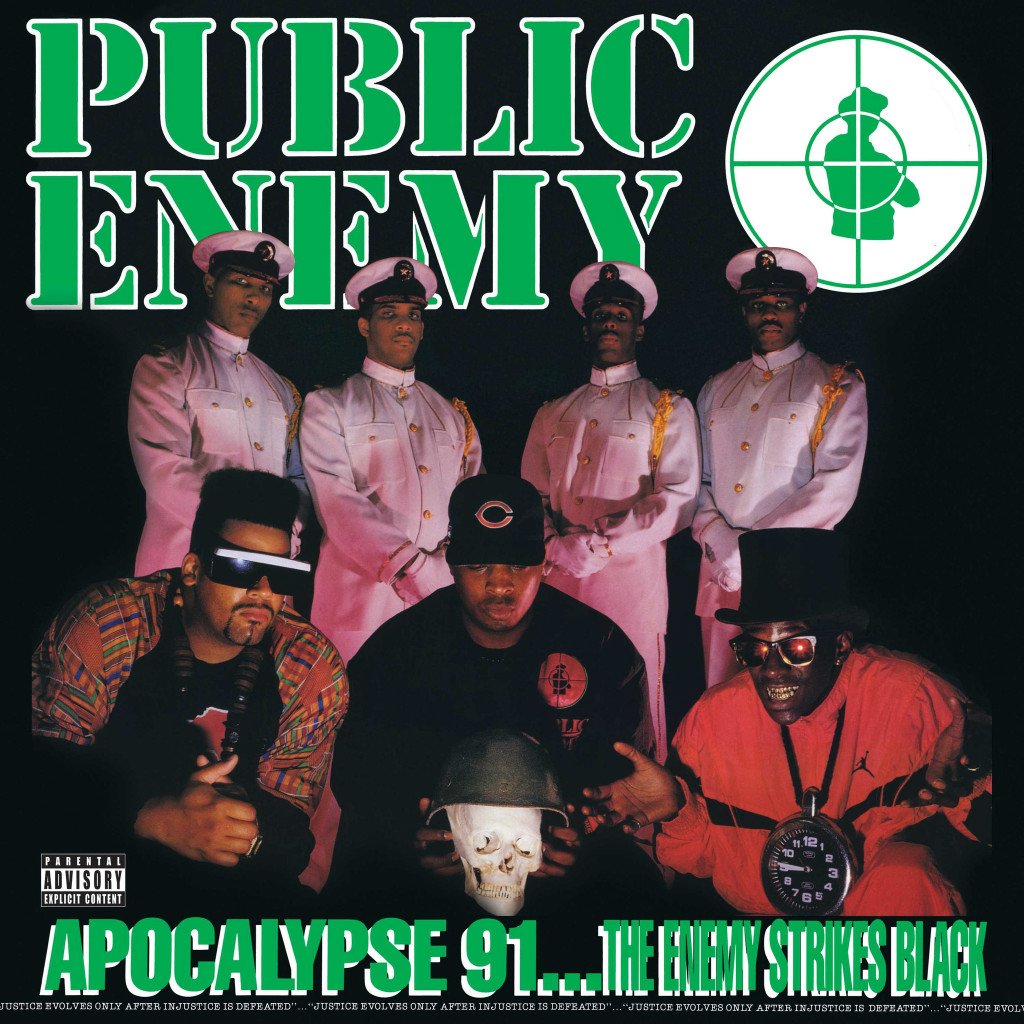Happy 30th Anniversary to Public Enemy’s Greatest Misses compilation, originally released September 15, 1992.
Much like basketball, artists and groups with the hot hand like to keep shooting. Thirty years ago, Public Enemy was on the hottest streak of their careers, in the midst of an extremely successful commercial and critical run. The group, led by Carlton “Chuck D” Ridenhour and William “Flavor Flav” Drayton, had released certified platinum hits with both Fear of a Black Planet (1990) and Apocalypse ’91: The Enemy Strikes Black (1991). Less than a year later, they released a “heat check” in the form of Greatest Misses.
The title Greatest Misses would suggest the album was Def Jam, Public Enemy’s label, coming up with a too clever title for a compilation of the group’s outtakes and shelved material. Instead, the project is half “new” album, half remix album. The first half features what was then recently recorded material by the group. Many of these entries feature references to the current events of early/mid 1992. The album’s second half features remixed material taken from P.E.’s first four albums, handled by both established producers and newcomers.
Greatest Misses didn’t receive much love when it was released. Many thought it was Public Enemy’s weakest undertaking and a sign that cracks were appearing in the crew’s once impregnable façade. Truthfully, the album is better than it gets credit for. Chuck has a lot to say, and he was ahead of his time in terms of subject matter. Musically, Greatest Misses respects the group’s roots and takes their sound in different directions. Overall, the new material outshines the remixes, but some producers’ reinterpretations of Public Enemy’s lesser-known album cuts are pretty interesting.
Public Enemy’s commercial success led to them becoming an in-demand live act. After the success of Apocalypse ’91, they undertook multiple global tours, frequently sharing the bill with bands from other genres. After the “Tune In, Turn On, Load Out” tour with Sisters of Mercy and Gang of Four was cancelled before it could be completed, the group began the “Bring the Noise” tour with Anthrax and Primus. Shortly after Greatest Misses was released, the group joined U2’s “Zoo TV” tour, joining Big Audio Dynamite II and later the Sugarcubes.
Opening for one of, if not, the biggest band in the world at the time indicated that Public Enemy was hitting its zenith of cultural acceptance. However, everything wasn’t exactly smooth sailing. Though things for the band weren’t facing the inner turmoil that defined their existence in 1989 and early 1990, they were still in the throes of controversy shortly before Greatest Misses was released. The group’s video “By the Time I Get to Arizona” was earning them a lot of attention, as it contrasted the non-violent protests of the 1960s with the group assassinating Arizona-based politicians who refused to honor the birthday of Martin Luther King Jr. as a national holiday. Combined with the tumultuous political and cultural climate of the period, the group still had a lot to get off their chests less than a year after their previous album dropped.
Watch the Official Videos (Playlist):
“Hazy Shade of Criminal,” Greatest Misses’ first single and best song, recaptures the aesthetics of Public Enemy’s musical peak. The sonic backdrop is a dense wall of samples, echoing the feel of the group’s It Takes a Nation of Millions to Hold Us Back (1988) era. On the mic, Chuck observes the media’s continued insistence to paint the Black population of the United States as potential threats, while all but ignoring the criminal acts of politicians and police officers.
The album-opening “Tie Goes to the Runner” also evokes Public Enemy’s early history, as Chuck comments on everything from the LA Riots to the 1992 presidential election to Murphy Brown. On “Hit the Road Jack,” the group targets white supremacy in its many forms and the many ways that “devils” of all races further its advancement. Chuck stands stoic, like an angry prophet, rapping, “When I come they all run & hide and they quit / And yell loud, ‘Here comes Chuck with that Black shit!’”
The Bomb Squad don’t have many production credits on Greatest Misses, helming two of the least traditionally Bomb Squad-sounding recordings on Greatest Misses’ first half. “Gett Off My Back,” which first appeared on the Mo’ Money soundtrack (1992), released months earlier, is drenched in thick and muddy P-funk sensibilities. Flavor Flav, slowing down his usually frenetic pace on this solo track, warns about the perils of drug addiction. He’s assisted by the “Flav-O-Trons,” copies of himself who sing backup and belt out the song’s “Tear the Roof Off”-inspired chorus.
“Gotta Do What I Gotta Do” is one of the Bomb Squad’s most streamlined productions, as Chuck D gets loose over the organ and percussion intro from Grant Green’s “Ain’t It Funky Now.” He restates his status as a teller of uncomfortable truths, blistering his critics throughout four different verses. In particular, Chuck targets the backlash against the aforementioned “By the Time I Get to Arizona” video. A few months later, “Gotta Do What I Gotta Do” would appear on the Trespass film soundtrack.
“Air Hoodlum” is one of the group’s best narrative tracks, as Chuck D details the rise and fall of the fictional “Micky Mack,” a Long Island-born, blue-chip high school basketball player who is chewed up and spit out by the system that profits from his labor. Chuck breaks down the high school-to-NBA pipeline of the early 1990s, where student athletes are trained to become products. Their education an afterthought, these athletes’ sole purpose is to generate millions for multi-billion dollar corporations. After an on-the-court injury ends Mack’s career, Chuck laments how he was a “hometown hero, but now a zero / to those hypocrites who ripped him blind / For his skills without the will to develop his mind.”
“Air Hoodlum” was produced by Dr. Treble N Mr. Bass of Tha Hittmobb, their sole production credit in the last three decades. The track is grim and moody, punctuated by frequent and creative beat switches. I suspect that “Dr. Treble N Mr. Bass” are aliases for Chuck D and Gary G-Wiz, trying to be slick. I also suspect the song at least partially inspired Spike Lee’s He Got Game, which incorporates many of the themes and imagery of the group’s recording. Public Enemy would provide the entire soundtrack for the 1998 film.
Enjoying this article? Click/tap on the album covers to explore more about Public Enemy:
Greatest Misses’ remixes are a mixed bag, but never boring. Philadelphia-based producer Dame Dollas (not to be confused with NBA point-guard/rapper Dame D.O.L.L.A. a.k.a. Damian Lillard) morphs “Megablast,” one of the Bomb Squad’s most spare productions, into a wall of sirens, guitars, and vocal samples from Spike Lee’s Jungle Fever. Jinx worked extensively with the Bomb Squad on Ice Cube’s debut AmeriKKKa’s Most Wanted (1990) and learned a lot from the production masters. His “Stolen Souled Out Reparation Mixx” of “Who Stole the Soul?” is, like the original, a sonic assault, but one that sounds distinct to Jinx’s own production sensibilities.
The overall best remixes are entries where the producers decide to take songs in a completely different direction. Teams of Jam Master Jay & Chyskillz and DJ Chuck Chillout & Salaam Remi remix “Louder Than a Bomb” and “How to Kill a Radio Consultant” respectively. The teams transform the songs into jazzy, relatively laid-back endeavors, similar to the Native Tongues and D.I.T.C. production styles that were gaining their footing in the early to mid-1990s.
Later pressings of the album close with a “warts and all” live UK performance of the Pete Rock remix version of “Shut ’Em Down” (sans Pete Rock). The song includes the sound distortion and feedback, along with Flav checking the soundman while performing ad-libs. Otherwise, the song convincingly conveys the energy of the group’s live shows.
Greatest Misses was certified Gold and is unfortunately Public Enemy’s last commercial hit. The hip-hop landscape shifted throughout the mid to late 1990s, and rap music became an increasingly young person’s game and dropping knowledge was no longer in vogue. The group would drop two more albums on Def Jam, including the He Got Game soundtrack, before spending nearly two decades releasing music independently.
Greatest Misses is one of the last examples of a hip-hop group dedicated to releasing conscious and political minded music achieving mainstream success. It wasn’t a championship-winning effort by the group, but it was nevertheless one that showed that while the league was changing around them, they could always make things interesting.
LISTEN:





